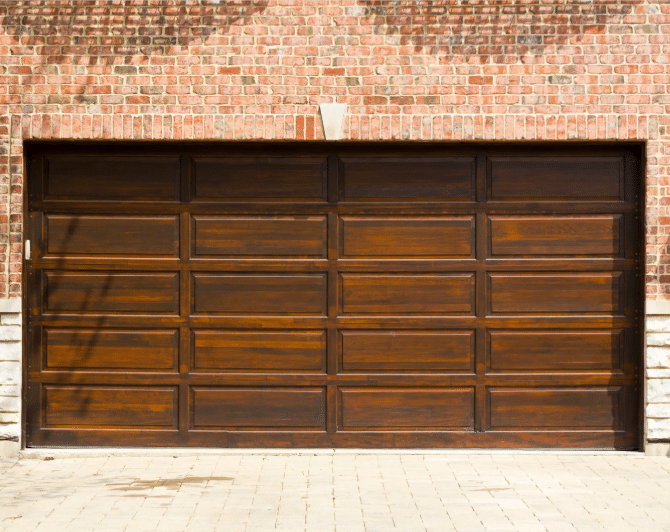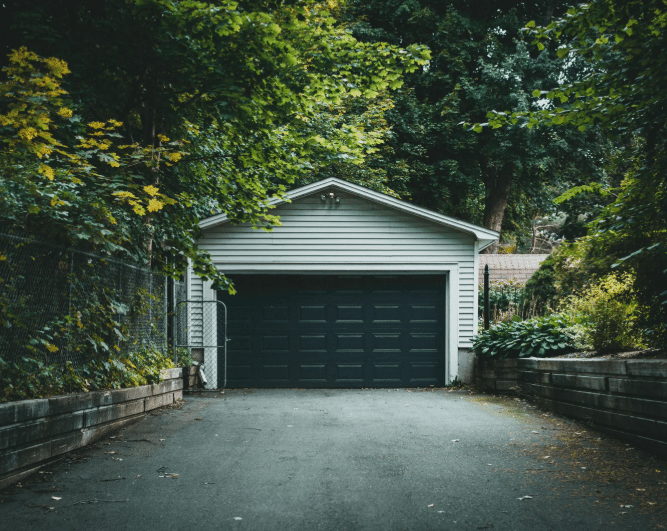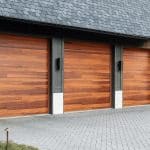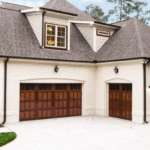Learn the differences between wood vs steel garage doors and how to choose the right material for your home based on your budget, lifestyle, and long-term goals.
Garage doors are one of the most noticeable features of any home, influencing not only how your property looks but also how it performs in terms of security, maintenance, and energy efficiency. When it comes to selecting the right garage door, many homeowners find themselves weighing the pros and cons of wood vs steel garage doors. Both materials come with advantages and potential drawbacks that impact both short-term and long-term satisfaction.
Choosing between wood and steel depends on your priorities. Do you value the warmth and natural beauty of traditional materials, or are you more interested in durability and low-maintenance features? A well-informed choice ensures that your garage door complements your lifestyle and fits within your financial plans.
Understanding how wood vs steel garage doors perform under various circumstances will help you make a confident decision. This guide covers key considerations like cost, appearance, durability, and maintenance to help you navigate your options effectively.
Comparing Aesthetics and Design Options
The Natural Charm of Wood Garage Doors

Wood garage doors offer a timeless, classic appearance. They provide a natural texture and depth that cannot be replicated by synthetic materials. Homeowners who prefer a traditional or high-end architectural style often gravitate toward wood because of its authentic beauty and the variety of design possibilities.
Customization is another strong point. Wood garage doors can be stained or painted to match your home’s exterior. The ability to choose from different wood species, including cedar, mahogany, and redwood, allows for greater personalization.
The Sleek Look of Steel Garage Doors
Steel garage doors are known for their versatility in design. They can mimic the look of wood through advanced finishes while offering modern, minimalist, or industrial aesthetics. These doors are often available in a range of colors and panel designs, providing flexibility to suit contemporary homes.
One of the practical benefits of steel is its consistency. Unlike natural wood, steel will not warp, crack, or fade with weather exposure. For homeowners prioritizing low upkeep, this is a considerable advantage.
Maintenance and Durability Factors to Consider
Long-Term Maintenance Requirements
One of the biggest differences between wood and steel garage doors is the maintenance they require. Wood demands regular care, including refinishing every few years to protect against moisture, sun damage, and pests. Without proper upkeep, wood garage doors can deteriorate, leading to higher long-term costs.
Steel garage doors are much easier to maintain. A simple cleaning routine and occasional touch-ups for scratches can keep them looking good for years. Additionally, steel options with anti-rust coatings extend their lifespan in various climates.
Durability in Different Climates
For homeowners concerned about how their garage doors perform in extreme weather, understanding material behavior is essential. Steel excels in durability and withstands harsh weather conditions like high winds, hail, and fluctuating temperatures. However, it can be prone to dents if struck with force.
Wood, while durable when maintained properly, is more susceptible to climate-related damage, especially in areas with high humidity or heavy rainfall. Moisture can cause wood to swell, warp, or rot over time, which can affect functionality and appearance.
For more on how routine maintenance can extend the life of your door, visit our garage door maintenance page.
Cost Comparison: Upfront and Long-Term Investment
Initial Costs for Wood Garage Doors
Wood garage doors typically come with a higher initial price point. Customization, premium materials, and labor-intensive craftsmanship contribute to the expense. While these doors can add character and sophistication to a home, the upfront investment is something to consider if you are budget-conscious.
Initial Costs for Steel Garage Doors

Steel garage doors are generally more affordable at the outset. Even higher-end models with insulation or advanced coatings are often less expensive than wood alternatives. This makes steel an attractive option for homeowners looking for a reliable, cost-effective solution without sacrificing aesthetics.
Ongoing Costs and Longevity
While wood garage doors require more frequent maintenance and potential repairs, steel doors involve fewer ongoing costs. Their longevity often offsets the need for replacement, provided that protective coatings remain intact and minor repairs are handled promptly.
Security and Energy Efficiency
Security Benefits
Steel doors are often considered more secure due to their sturdy construction. They offer enhanced protection against break-ins and can integrate advanced locking systems. In contrast, wood, although solid, may not offer the same level of impact resistance as steel.
Energy Efficiency Considerations
Both wood and steel garage doors can be insulated to improve energy efficiency. Insulated steel doors typically outperform wood when it comes to retaining heat or cooling, helping regulate the garage’s internal temperature. This can impact your home’s overall energy costs if your garage connects to living spaces.
How to Decide Between Wood vs Steel Garage Doors
Assess Your Home’s Style and Needs
When choosing between wood and steel garage doors, start by considering how each material complements the architectural style and aesthetic of your home. Wood garage doors often pair beautifully with traditional, craftsman, or rustic home designs, adding warmth, character, and natural beauty that enhance curb appeal. Their rich textures and customizable finishes allow for a bespoke look that can make a home feel more inviting. In contrast, steel garage doors typically suit modern, contemporary, or industrial-style homes with their clean lines, smooth finishes, and sleek, minimalist appearance. Steel also offers a wide variety of colorscolor and design options, including faux wood finishes that mimic the appearance of real wood with far less upkeep.
Evaluate Your Budget and Lifestyle
Beyond aesthetics, your budget and how you plan to maintain your garage door are crucial factors. Wood doors, while beautiful, tend to be more expensive upfront and require regular maintenance such as painting, staining, and sealing to protect them from moisture, sun exposure, and pests. This makes them better suited for homeowners who value craftsmanship and are willing to invest both time and money to preserve their door’s condition. On the other hand, steel doors are generally more affordable and offer excellent durability with minimal maintenance. They are resistant to warping, cracking, and weather damage and can come with protective coatings to prevent rust. For busy homeowners who prioritize convenience, longevity, and cost-effectiveness, steel doors are often the more practical choice.
Speak to a Professional Installer
Finally, consulting with an experienced and reputable garage door installer can help ensure you make the best decision for your specific home, climate, and lifestyle needs. A professional can provide insight into the latest insulation technologies, security features, and design trends, as well as advise on how different materials perform in various weather conditions. They can also help you understand the long-term costs and benefits of each option, including warranties, energy efficiency, and resale value. Engaging a trusted expert takes the guesswork out of the process and helps you confidently choose a door that enhances your home’s beauty, functionality, and value.
Frequently Asked Questions
What are the main differences between wood and steel garage doors?
Wood offers a natural, classic look but requires more maintenance. Steel provides durability, lower maintenance, and a range of design options.
Which material lasts longer, wood or steel?
Steel generally lasts longer with less upkeep, while wood requires more regular maintenance to achieve a comparable lifespan.
Are steel garage doors more energy-efficient than wood?
Yes, insulated steel garage doors typically offer better energy efficiency compared to wood.
Can I get a steel garage door that looks like wood?
Yes, many steel doors feature wood-grain finishes that replicate the look of real wood.
How much maintenance do wood garage doors require?
Wood garage doors require periodic sealing, painting, or staining to protect against moisture and sun damage.
Conclusion
Deciding between wood vs steel garage doors depends on your specific needs, preferences, and budget. Wood offers a warm, timeless appeal with customization options that fit classic architectural styles. Steel brings durability, lower maintenance, and versatility that work well for modern homes and busy lifestyles.
Working with a trusted provider such as Michigan Door ensures you receive expert advice and high-quality products suited to your home. Whether your focus is on aesthetics, durability, or budget, making the right choice leads to long-term satisfaction.
End Note
Our team at Michigan Door is committed to delivering professional new garage door installation and replacement services to homeowners throughout the region. We focus on solutions that match your needs for beauty, durability, and performance.
We share updates, tips, and inspiration on our Instagram page to help you stay informed about the latest trends and maintenance for garage doors.
To experience our services firsthand, contact us today or visit our Troy location for personalized assistance. We are here to help with your garage door questions and offer convenient ways to reach us through our contact page.





